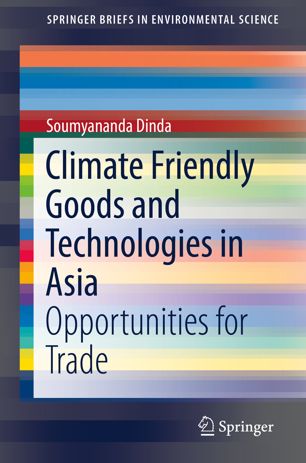

Most ebook files are in PDF format, so you can easily read them using various software such as Foxit Reader or directly on the Google Chrome browser.
Some ebook files are released by publishers in other formats such as .awz, .mobi, .epub, .fb2, etc. You may need to install specific software to read these formats on mobile/PC, such as Calibre.
Please read the tutorial at this link: https://ebookbell.com/faq
We offer FREE conversion to the popular formats you request; however, this may take some time. Therefore, right after payment, please email us, and we will try to provide the service as quickly as possible.
For some exceptional file formats or broken links (if any), please refrain from opening any disputes. Instead, email us first, and we will try to assist within a maximum of 6 hours.
EbookBell Team

4.1
70 reviewsThis book investigates the potential trade opportunity of climate friendly goods and technology (CFGT) in Asia and South Asia region, and uses a case study of India to clarify India's position on global warming and efforts to mitigate climate change impacts regionally and globally. In four main sections, the book applies econometric techniques to analyze the trade performance of CFGTs in nations in Asia and South Asia, in order to assess trade gaps and map the movement of CFGTs in these regions. The major themes addressed in the book include climate change and trade, issues that shape regional and national policies, and strategies for implementing global climate change mitigation on trade opportunities and developments.
Section 1 introduces readers to some background on global climate change threats and its effects on trade, as well as the need to develop trade for CFGTs. Section 2 assesses the trade performance of CFGTs in Asia, and South Asia, and the competitiveness of CFGT trade. Section 3 uses a regional orientation index to analyze CFGT trade. Section 4 discusses the potential business applications of CFGT trade in the Asia, South Asia region, and uses a case study on India to analyze climate change mitigation effects on trade and policy. The book will be of interest to researchers, students, governments, and policy makers.